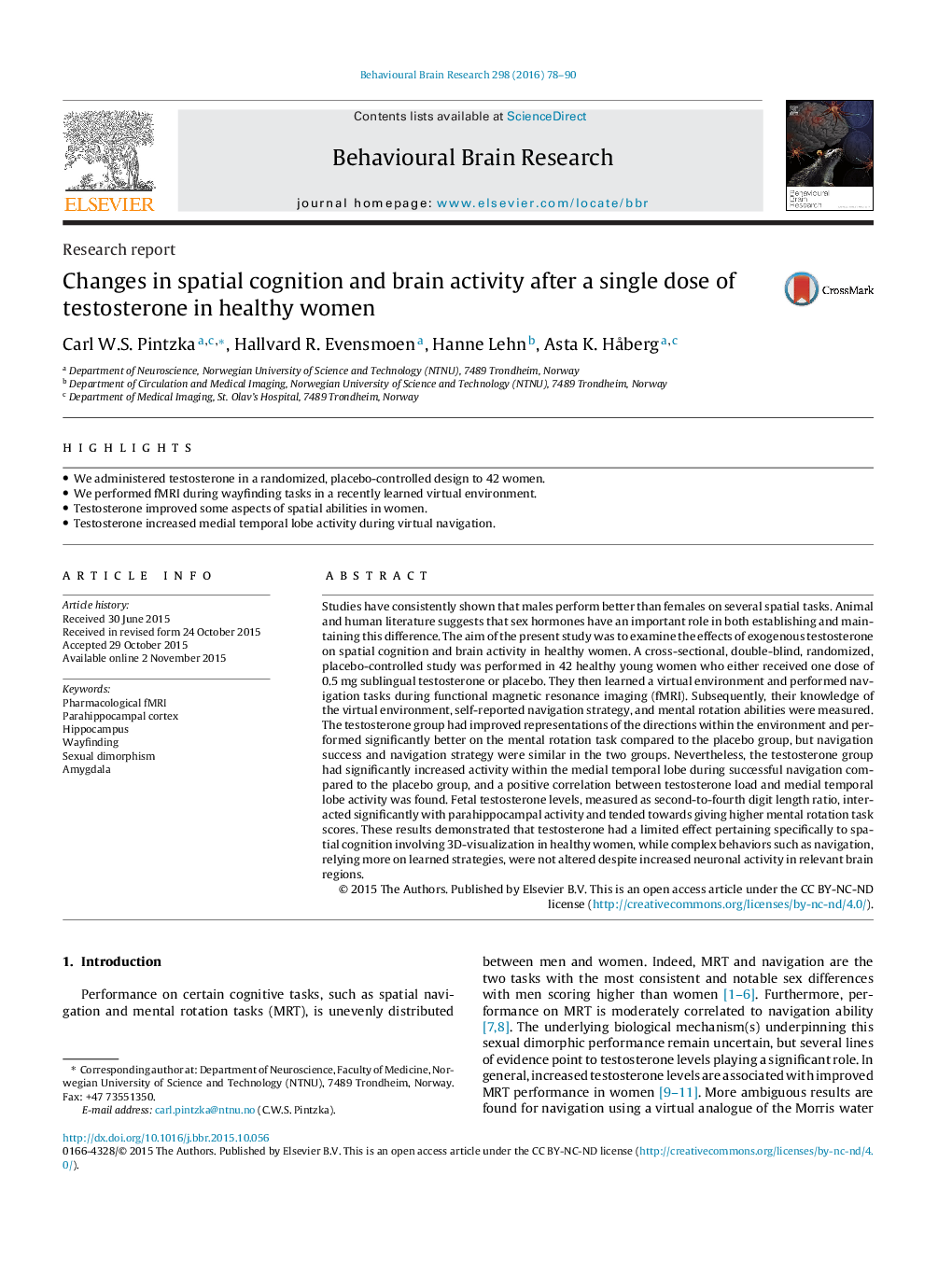| Article ID | Journal | Published Year | Pages | File Type |
|---|---|---|---|---|
| 6256264 | Behavioural Brain Research | 2016 | 13 Pages |
â¢We administered testosterone in a randomized, placebo-controlled design to 42 women.â¢We performed fMRI during wayfinding tasks in a recently learned virtual environment.â¢Testosterone improved some aspects of spatial abilities in women.â¢Testosterone increased medial temporal lobe activity during virtual navigation.
Studies have consistently shown that males perform better than females on several spatial tasks. Animal and human literature suggests that sex hormones have an important role in both establishing and maintaining this difference. The aim of the present study was to examine the effects of exogenous testosterone on spatial cognition and brain activity in healthy women. A cross-sectional, double-blind, randomized, placebo-controlled study was performed in 42 healthy young women who either received one dose of 0.5Â mg sublingual testosterone or placebo. They then learned a virtual environment and performed navigation tasks during functional magnetic resonance imaging (fMRI). Subsequently, their knowledge of the virtual environment, self-reported navigation strategy, and mental rotation abilities were measured. The testosterone group had improved representations of the directions within the environment and performed significantly better on the mental rotation task compared to the placebo group, but navigation success and navigation strategy were similar in the two groups. Nevertheless, the testosterone group had significantly increased activity within the medial temporal lobe during successful navigation compared to the placebo group, and a positive correlation between testosterone load and medial temporal lobe activity was found. Fetal testosterone levels, measured as second-to-fourth digit length ratio, interacted significantly with parahippocampal activity and tended towards giving higher mental rotation task scores. These results demonstrated that testosterone had a limited effect pertaining specifically to spatial cognition involving 3D-visualization in healthy women, while complex behaviors such as navigation, relying more on learned strategies, were not altered despite increased neuronal activity in relevant brain regions.
